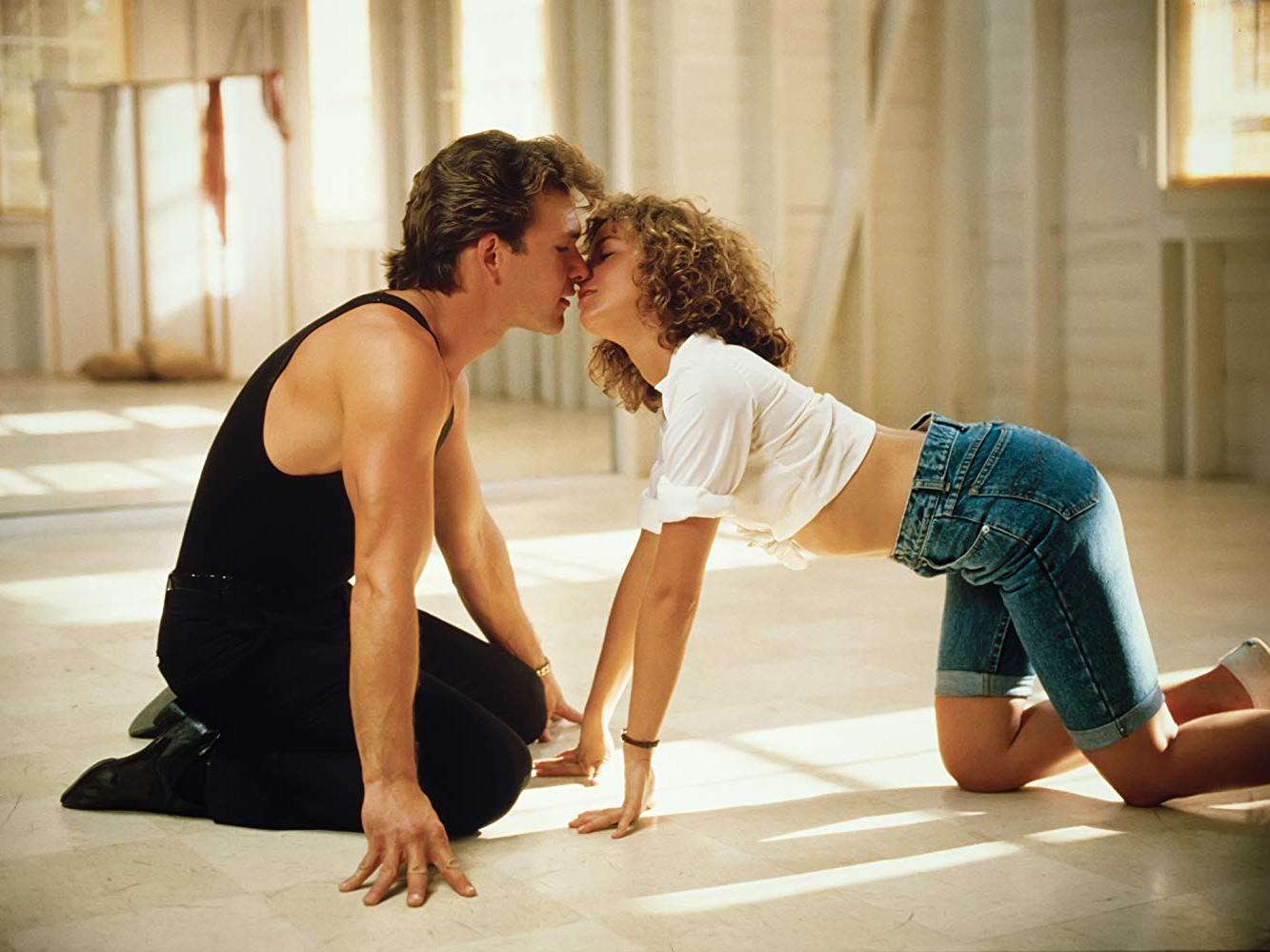The Independent's journalism is supported by our readers. When you purchase through links on our site, we may earn commission.
How ‘Dirty Dancing’ opened my eyes to the urgency of abortion rights
Pro-choice campaigners have called it the ‘gold standard’ in depicting reproductive rights on screen. With all that’s happening with Roe V Wade and Northern Ireland, it’s more prevalent than ever


Your support helps us to tell the story
From reproductive rights to climate change to Big Tech, The Independent is on the ground when the story is developing. Whether it's investigating the financials of Elon Musk's pro-Trump PAC or producing our latest documentary, 'The A Word', which shines a light on the American women fighting for reproductive rights, we know how important it is to parse out the facts from the messaging.
At such a critical moment in US history, we need reporters on the ground. Your donation allows us to keep sending journalists to speak to both sides of the story.
The Independent is trusted by Americans across the entire political spectrum. And unlike many other quality news outlets, we choose not to lock Americans out of our reporting and analysis with paywalls. We believe quality journalism should be available to everyone, paid for by those who can afford it.
Your support makes all the difference.Dirty Dancing is a feminist manifesto. Yes, it’s a story with a heroine who has to defy her family, stand up for her principles, save the man she loves, and is finally lifted up in a floaty pink dress – but you can still be a powerful woman in a floaty pink dress, after all. And you should never put up with being put in a corner, no matter what you’re wearing.
If our heroine, Baby, is an underrated feminist icon, Penny – Johnny’s dance partner, played by eighties pin-up Cynthia Rhodes – has the story that is the true challenge of the film. It’s the substance too; it’s what gives the whole thing some proper gravitas. Dirty Dancing shows a middle stage of womanhood that is so often unrepresented, ignored, trivialised, or suppressed with endless daily concerns of motherhood. Penny has a genuine crisis to attend to, her abortion, and frankly, let’s be honest, we’ve all had our scares. Despite her immense glamour, Penny is, in fact, the “everywoman”. She’s all of us, hiding inside the most perfect shell.
In 1963, when Dirty Dancing is set (and when Eleanor Bergstein, creator of the film, was in her mid-twenties), abortion was still illegal in the United States, and it would be another decade until the United States Supreme Court ruling in the case Roe v Wade changed everything and made legal, safe terminations available to American women. Currently – there are no guarantees as to whether it will remain. As I write, the US Supreme Court has agreed to hear a case which many view as a conduit to the dismantling of Roe v Wade. Expected to be heard in June 2020, the case concerns Louisiana legislature that, if upheld, would see the state left with just one doctor authorised to perform abortions. And closer to home, Northern Ireland, despite recent advances in the case of rape, incest, and extreme foetal abnormalities, still will not provide safe and legal abortions for other women who are unable to safely and responsibly continue with a pregnancy.
In Dirty Dancing, Penny has no choice but to pay for an illegal procedure. Rhodes plays the role so well – tough and desperate, vulnerable and steely, tearful and mature. And it is Penny’s good character that saves her. She digs in, she knows how to take responsibility for herself, she doesn’t bother with Robbie again once it’s clear he’s not going to help – she takes it all on herself. Penny is nails. What a woman.
And it’s Baby – a 17-year-old girl, who immediately understands what she needs and tries to fix it. Her offer of help is automatic. There is zero discussion of the ethics of abortion. It is a given to all who know and care for Penny that it is the necessary and correct course of action. Our hero Johnny and his cousin Billy are right there with her, and it only makes the men sexier and more appealing for not questioning Penny’s right to do as she does.
Even when Baby’s father Jake Houseman finds out, there doesn’t appear to be any judgement on Penny, only concern for her health and disgust for the “butcher” who didn’t do a good job. It is an extraordinary scene – thanks mainly to the restraint in the writing, plus the powerful performances. It would be so easy for the film to lecture us at this point, or make Jake a patriarchal bogeyman, but writer Bergstein does neither. She just lets her characters be who they are – what they don’t say is more important than what they do. It’s not very feminist of me to think this way, but look, we all need a day off – men who promote and support women’s rights are sexy. There’s no point denying it.
Pro-choice campaigners have since called Dirty Dancing the “gold standard” in depicting an abortion on screen. Dirty Dancing showed me as a young girl, in the most delicate and gentle way possible, that should similar issues arise in my life, I could count on other women to help me. Penny is not alone – the touching gathering of all the other shocked dancers outside the cabin where she is moaning in pain also showed me that it doesn’t have to be a source of shame either. You just have to ask for help, and a community will draw close.
Female solidarity and male support are the twin poles holding up Dirty Dancing as a feminist trailblazer – a film that weaves a difficult and upsetting issue into an otherwise joyful confection in a principled, careful way. I loved Johnny for supporting Penny all the way. I loved Billy for doing his best to arrange the abortion itself. I loved Jake for treating Penny with such gentle respect. But most of all, I loved Baby for diving in there and making it happen, without a moment’s hesitation. She gets the money. She learns the dance. She covers for Penny. She gets her dad. She is a force to be reckoned with.
I Carried A Watermelon: Dirty Dancing and Me by Katy Brand is published by HQ, HarperCollins in hardback, ebook and audiobook
Join our commenting forum
Join thought-provoking conversations, follow other Independent readers and see their replies
Comments